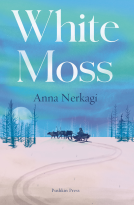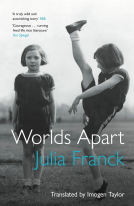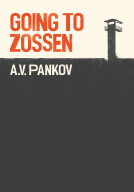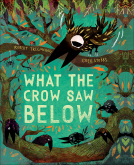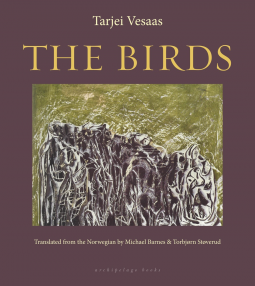
The Birds
by Tarjei Vesaas
This title was previously available on NetGalley and is now archived.
Send NetGalley books directly to your Kindle or Kindle app
1
To read on a Kindle or Kindle app, please add kindle@netgalley.com as an approved email address to receive files in your Amazon account. Click here for step-by-step instructions.
2
Also find your Kindle email address within your Amazon account, and enter it here.
Pub Date May 03 2016 | Archive Date Dec 30 2015
Archipelago Books | Archipelago
Description
The Birds tells the story of Mattis, a deeply sensitive, intellectually disabled young man living in a small house in the Norwegian countryside with his sister Hege. Eking out a modest living knitting sweaters, Hege encourages her brother to find work to ease their financial burdens, but his attempts come to nothing.
When he finally sets himself up as a ferryman, the only passenger he manages to bring across the lake is a lumberjack, Jørgen. But when Jørgen and Hege become lovers, Mattis finds the safety of his familial life threatened and his jealousy quickly spirals.
In The Birds, Norway’s most celebrated writer of the twentieth century allows us to rediscover the world. By turns frightening, beautiful, confounding, and full of mystery, it is a world we come to see more vividly through Mattis’s eyes.
Advance Praise
"A spare, icily humane story... The character of Mattis, absurd and boastful, but also sweet, pathetic and even funny, is shown with great insight. The translation conveys successfully a concetration of style and feeling that seems to be Vesaas' characteristic mark as a novelist." -- Sunday Times
"Beautiful and subtle" -- Scotsman
"The Birds is a true literary masterpiece - most likely one of the most beautifully haunting novels you will ever read." -- Nordic Bookblog
"The inexplicable thoughts that recur to Mattis will do so to readers as well, long after the book has ended." -- Hannah Sheldon-Dean, Bookslut
"Disarmingly insightful... Vesaas conveys subtle emotional rhythms with masterful economy." -- Tablet
"A masterpiece." -- Literary Review
Available Editions
| EDITION | Other Format |
| ISBN | 9780914671206 |
| PRICE | $18.00 (USD) |
Average rating from 13 members
Featured Reviews
 Educator 211653
Educator 211653
Thank you Net Galley. A beautiful, sensitive novel that uses the power of nature as a mover. the author has described the loneliness and isolation of the individual in moving terms. A fabulous introduction to the author's writing.
 Emma b B, Reviewer
Emma b B, Reviewer
Beautiful and Thought Provoking
Mattis and his sister Hege live together on the edge of a lake, eking out a living from Hege's knitting. Mattis, whom the locals refer to as "Simple Simon" worries that his sister will leave him, whilst being extraordinarily aware of the beauty of birds.
Narrated from Mattis' perspective, with all his confusions and worries, Mattis tries to understand others but finds it very difficult. He is also frustrated that others don't seem to follow his line of thinking, or understand about the really important things.
One day he rows a man across the lake and back to his home, and everything changes.
A moving tale of how others think differently, and how Mattis by trying to conform to expected behaviours only causes more confusion and difficulties - as well as some joyous successes in life.
Beautifully translated, this book takes the reader straight to the shores of the lake where they, like Mattis, might like to sit and think a while on the messages in this poignant novel.
 John L, Reviewer
John L, Reviewer
We're somewhere in rural Scandinavia, on the shores of a large lake, but in a community relying on the farmland that is scattered in amongst the woods. Our chief concerns are brother and sister – Mattis and Hege. He, Mattis, is what the other villagers call 'simple' – sure, he knows a few things about life, and what makes a clever person and what makes a well-turned phrase, and how to talk to girls and when to not stare at them, but he is definitely not quite as the others would wish. Those others include his sister, who is seeing her life waste away in listening to his chatter, knitting jumpers to make ends meet, and regretting in her own small way what has got her to middle-age in this situation. But from this galling introduction, you should take away the bigger picture – even if there is no way out, the life in this countryside is brilliantly conveyed, full of sun as well as shade, of labour and of idleness, and wit and charm as much as hardship. I defy you to read this and think this corner of Scandinavia bleak.
What's more, beyond the character names, you might not even be in Scandinavia. You could put this anywhere, in any isolated bundle of homesteads. I put this down to the writing, which is so visual, even when it is severely concentrated as it is on Mattis' mindset and world-view. What's more, you can read this in complete ignorance that this is a lost classic written in the 1950s. There is nothing to pin this down as regards the time-line – the lake's powerboats and tourists are mentioned here and there, but nothing dates the piece whatsoever. I put this down, again, to the style, which is very snappy and readable – quite heavy on dialogue, using a nice rhythm of paragraphs where none are too short but none too long.
This is the kind of book where you would expect a modernist approach – the dense look inside the mind of a – well, I was going to call him dense too, but that's crude. Certainly you could imagine a much lesser volume along these lines, where the concentration of Mattis' concerns made page-and-page-long paragraphs. Mattis is sure he can hear a woodcock fly over the house as a routine – and woodcocks never change their routine. Mattis is convinced that a tree – one of a pair the villagers have privately named after him and his sister, even if perhaps nobody knows which is which – is heralding a major change when it gets struck by a lightning strike. Mattis, even though he seems to be known to all and sundry about, tries to work in a turnip field, and the thoughts we experience during his day's labours are fascinating, never drear or bleakly presented.
You must thank the translators too for their part in keeping this novel's novel clarity. Sometimes we drip into voices Mattis hears in his head, without speech-marks, but you never get lost in what is what. The plotting has that quality where it's partly fully predictable, and partly eternally surprising, but never really gives you pause to work out which it's being at any particular time. And the humanity of the piece, in bringing this couple of adults to our attention, both with their flaws and their perfections, is one more element that makes it wholly readable and enjoyable. I'm aware that my review has put together a lot of opposites, which might suggest doubt. If anything I do this to show how much of this book has a sort of ephemeral quality that is hard to define and pin down. What is inescapable, however, is how much I enjoyed it. I really was surprised by its qualities.
 Mandy J, Reviewer
Mandy J, Reviewer
This is a charming and touching little book, gentle and melancholy, with beautiful and lyrical descriptions of the countryside and a genuine warmth for the characters. It’s the tale of a brother and sister living in an isolated rural community in Norway. Mattis has mental disabilities and in many ways is very child-like. He finds it hard to express himself though feels things deeply. He is totally reliant on his sister Hege, so when a stranger comes on the scene and Mattis’ quiet life begins to change, he finds it very hard to cope. Everybody means well in this tale, but sometimes just meaning well isn’t enough. It’s a simple tale of simple, ordinary folk doing their best with what life has given them, the sort of people who are rarely the protagonists of novels, and for a simple tale it packs a powerful punch. A real little gem.
 Carol C, Reviewer
Carol C, Reviewer
What a sad, poignant and haunting book! It's fascinating that it's told from Mattis's point of view. The author shows us what it is like to live in Mattis's head - and it's not an easy way to live.
In the first half of the book I felt so sorry for Hege. She has basically given up her life and any chance for happiness to take care of her mentally challenged brother. She's a loving sister and he depends on her totally, but she does have flashes of understandable frustration.
In the second half of the book, I was happy for Hege and my sympathy was with Mattis. It was understandable that he would be confused and frightened. Life with Hege was all he had ever known and fear that she might now leave him had to be totally overwhelming.
The author does an excellent job of making the reader feel the emotions of all the characters. The ending seems to be shown but leaves room for hope - for the reader to decide what happens.
This is an outstanding and thoughtful book. I can see why it is a Norwegian classic.
 Andrija F, Educator
Andrija F, Educator
*The Birds* by Tarjei Vesaas is a novel that delves into themes of isolation, mental struggle, and the relationship between humans and nature. Set in a remote village in Norway, the story follows a young woman named Siss who is grappling with her own psychological turmoil and a deep sense of disconnection from the world around her. The novel’s narrative is infused with symbolism and a sense of haunting beauty, reflecting Siss’s internal conflicts and her interactions with the natural environment, particularly the birds that feature prominently in the story. Vesaas’s writing is known for its lyrical and introspective quality, offering a profound exploration of the inner life of the protagonist and the existential questions she faces.

